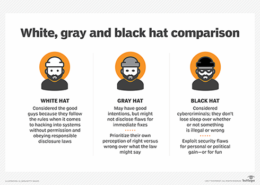How can we reduce the cancer cell growth by using proteins for the immunotherapy
Current Challenges and Solutions in Whole-Genome Sequencing and Analysis: High Cost: Challenge: Despite significant reductions in cost over the years, whole-genome sequencing (WGS) can still be expensive, particularly for large-scale studies or clinical applications. Solutions: Continued developmentRead more
Current Challenges and Solutions in Whole-Genome Sequencing and Analysis:
- High Cost:
- Challenge: Despite significant reductions in cost over the years, whole-genome sequencing (WGS) can still be expensive, particularly for large-scale studies or clinical applications.
- Solutions: Continued development of more cost-effective sequencing technologies and methods, as well as increased efficiency in sample preparation and data processing, can help reduce costs.
- Data Storage and Management:
- Challenge: WGS generates vast amounts of data, which require significant storage capacity and efficient data management systems.
- Solutions: Development of advanced data compression algorithms, cloud storage solutions, and improved data management practices can help address storage challenges.
- Data Analysis and Interpretation:
- Challenge: The sheer volume and complexity of genomic data make analysis and interpretation challenging. Identifying meaningful variants and understanding their biological significance is a complex task.
- Solutions: Improved bioinformatics tools and pipelines, machine learning algorithms, and comprehensive genomic databases can enhance data analysis and interpretation capabilities.
- Technical Variability and Accuracy:
- Challenge: Variability in sequencing platforms and techniques can lead to inconsistencies in data quality and accuracy. Errors in sequencing can affect downstream analyses and interpretations.
- Solutions: Standardization of sequencing protocols, rigorous quality control measures, and advancements in sequencing accuracy can mitigate technical variability and improve data reliability.
- Ethical, Legal, and Social Issues:
- Challenge: WGS raises ethical concerns related to privacy, data ownership, informed consent, and potential misuse of genetic information.
- Solutions: Development of robust ethical guidelines, legal frameworks, and policies to ensure responsible use of genomic data, as well as secure data sharing and privacy protection measures, are essential.
- Clinical Integration:
- Challenge: Integrating WGS into clinical practice for personalized medicine faces challenges related to regulatory approval, clinical validation, and physician training.
- Solutions: Collaborative efforts between researchers, clinicians, and regulatory bodies to establish clinical guidelines, validation studies, and educational programs for healthcare providers can facilitate clinical integration.
- Genomic Data Sharing:
- Challenge: Sharing genomic data across institutions and borders is essential for research but is hindered by privacy concerns, regulatory differences, and data interoperability issues.
- Solutions: International collaborations, standardized data formats, and secure data sharing platforms can promote effective genomic data sharing while addressing privacy and regulatory concerns.
See less


Proteins like antibodies, cytokines, and tumor antigens can be used to enhance immune responses against cancer cells. Antibodies can be engineered to target specific cancer cells, marking them for destruction by the immune system. Cytokines, such as interleukin-2 (IL-2), can stimulate immune cells lRead more
Proteins like antibodies, cytokines, and tumor antigens can be used to enhance immune responses against cancer cells. Antibodies can be engineered to target specific cancer cells, marking them for destruction by the immune system.
Cytokines, such as interleukin-2 (IL-2), can stimulate immune cells like T-cells and natural killer cells to attack cancer cells. Tumor antigens can be used to create vaccines that teach the immune system to recognize and target cancer cells.
By using these proteins, immunotherapy can:
– Enhance immune recognition of cancer cells
– Stimulate immune cell activation and proliferation
– Increase antibody-dependent cellular cytotoxicity (ADCC)
– Inhibit tumor growth and metastasis
Examples of protein-based immunotherapies include:
– Monoclonal antibodies (e.g., rituximab, trastuzumab)
– Cancer vaccines (e.g., sipuleucel-T)
– Cytokine therapies (e.g., IL-2, interferon-alpha)
– Adoptive T-cell therapies (e.g., CAR-T cell therapy)
These protein-based approaches can be used alone or in combination with other treatments to reduce cancer cell growth and improve patient outcomes.
See less